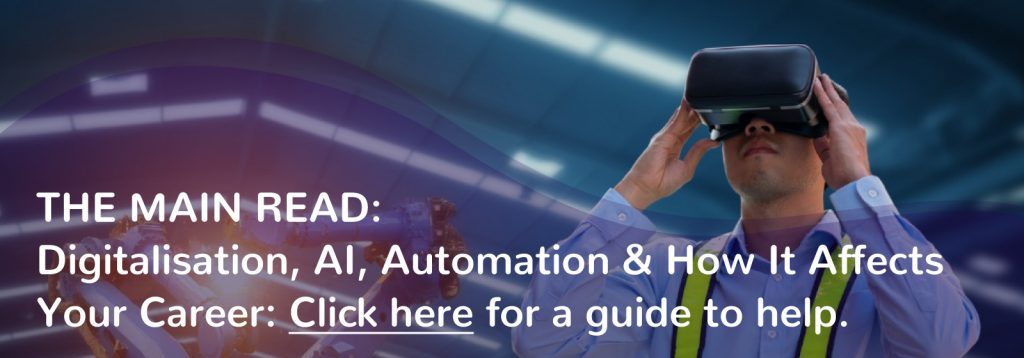Top business leaders and academics believe that AI-enabled automation is likely to boom post-pandemic.
Sanjeev Vhora, Accenture’s global lead for applied intelligence, sees that there is a “massive shift” in companies leaning towards technologies such as AI, analytics, and machine learning, which will boost revenue and efficiencies for businesses and employers.
Stanford University professor Erik Brynjolfsson believes that this pivot will lead to a productivity boom.
As it is, AI is already as good, if not better than humans at certain applications. Businesses will focus on incorporating the tech into our day-to-day work processes, which will lead to an acceleration in productivity.
Thankfully, according to a report by international professional services network Deloitte, Singapore has been rated as the leading country least at risk from lagging behind in automation in the Asia Pacific, ranking second for preparedness behind Australia, and ahead of Japan.
The report cites Singapore’s heavy investments in education, as well as assistance schemes for at-risk workers, and support for workers’ transiting to new roles and industries, for the reason for the ranking.
But there’s clearly no resting on laurels, with new initiatives to encourage adaptation of new technologies being implemented.
A joint-project initiated by Singapore’s Building and Construction Authority, and the Infocomm Media Development Authority, will provide up to 80% financing for construction companies — which have been struggling with prolonged worker shortages – to adopt robotics and automation solutions.
Locally, institutes of higher learning are infusing many of these automation and AI tools into their curriculum.
For example, at Nanyang Technology University (NTU), all accountancy and business undergraduates are now taught Python, and associated machine learning tools and techniques towards evidence-based decision making.
Their accountancy graduates are being trained in robotic process automation (RPA) to help automate the accounting work. The objective is for them to champion the use of automation and AI in their organisations.
Currently, the construction, logistics, and manufacturing industries in Singapore are on a fast track to embrace the full potential of automation.
Professor Damien Joseph, an associate dean (undergraduate academics) at Nanyang Business School, NTU, shares more about how Singaporean workers and employers can jump on the bandwagon quickly.
WATCH: Looking to pickup new digital skills? Here’s how to make the learning curve easier!
Can you explain what AI and automation are, in a nutshell, and why does it matter?
Prof. Joseph: For automation, one is basically handing routine tasks and decisions to an information technology (IT) artifact (commonly known as a computer).
RPA software is becoming easier to use and increasingly commonplace. For example, the popular Microsoft Teams program includes an RPA app – PowerAutomate – for users to automate routine tasks and decisions.
The implementation of AI has three implications for jobs:
- Job substitution, i.e., AI replaces a job meant for a human
- Job augmentation, i.e., AI extends the capabilities of a worker
- Job collaboration, i.e., AI as a colleague or co-worker
Realistically, automation and AI will affect jobs in every sector. The extent of the impact will depend on the level and type of manual work, level and type of routine work and decision making, as well as the level and type of problems (structured vs. unstructured).
However, Singapore companies are well-positioned to integrate automation and AI technologies into work processes.
Which industries should the Singapore workforce look at when it comes to automation and AI?
Prof. Joseph: So far, I have seen many examples of automation in the human resource sector, such as the use of automated video or text resumes; automated first-round screening of candidates, and candidate interview scheduling.
On the other hand, job roles that are specific to industries or sectors such as education will take longer before automation catches up, unless a decrease in manpower availability and lower cost of technologies make automation and AI a more attractive option.
A good example locally would be the Port of Singapore Authority. They have been using automated yard cranes for the longest time, which have led to great savings for them.
What are some of the challenges in embracing AI and automation for both employers and local workers?
Prof. Joseph: For employers, what they need to understand is the major resistance comes from the users and managers. While many of the automation tools are actually very simple to use, there are still workers that fear ‘touching’ them.
Why? Many reasons. Some do not understand the technology, while others are being asked to use automated tools without the necessary training, or there is no clear mandate to automate. Hence, inertia, coupled with a mistrust of the technology, can lead to a slow take-up rate.
My advice for Singapore workers and jobseekers is to take a good look at jobs they’re either in or applying for, and consider how much of the role can be automated.
There are many technologies out there. Organisations decide which to implement, be it for automation, analytics, or AI, and these are important to their employees, and for his or her career progression and relevance.
Try and work with the company’s IT team to find out what your company is leaning towards.
Don’t go jumping on the bandwagon to learn programming such as Python or Java if you’re not certain if you’ll use it at work — knowledge degrades when it is not practised.
Learn the technologies for your current and next job role: That’s the best advice I can give to future-proof yourself!
















